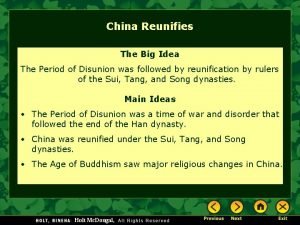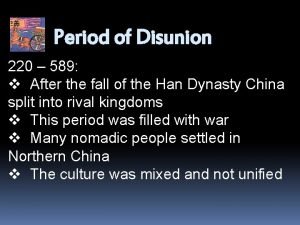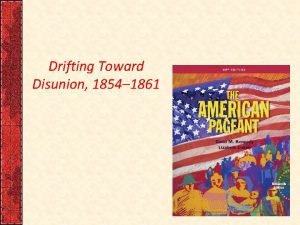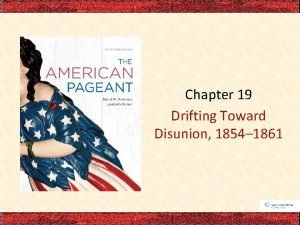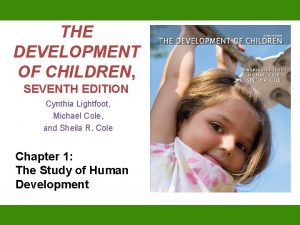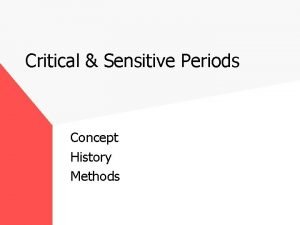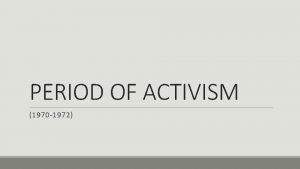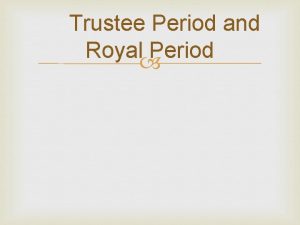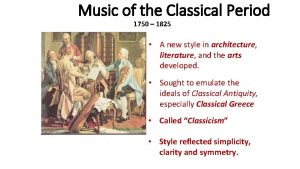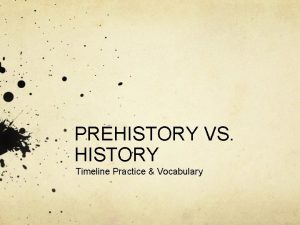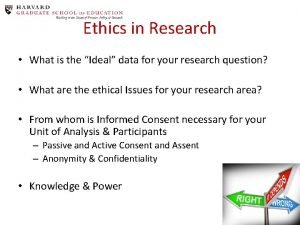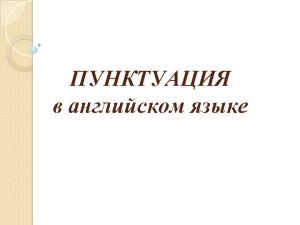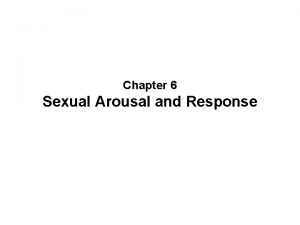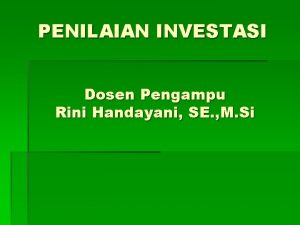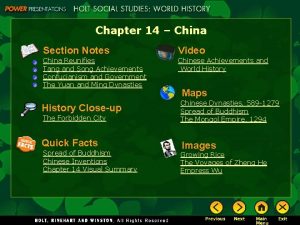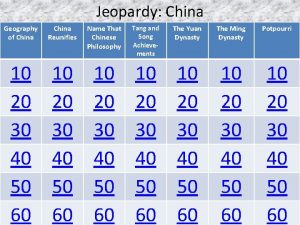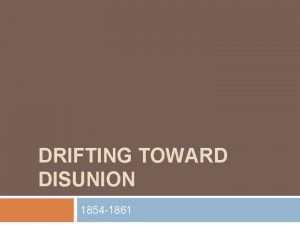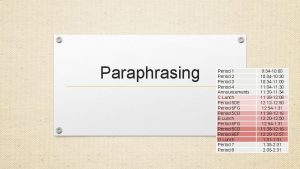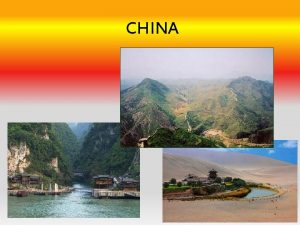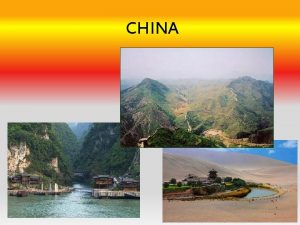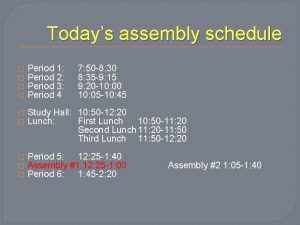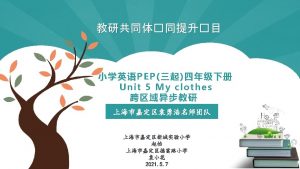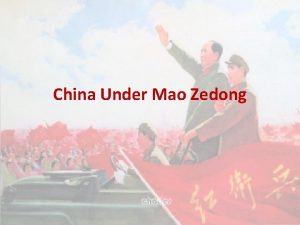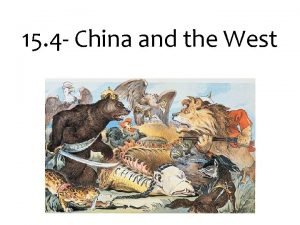China China Reunifies The Period of Disunion When

































































- Slides: 65

China

China Reunifies

The Period of Disunion When the Han fell and China split apart this was known as the Period of Disunion

During this time many nomadic people settled in China They adopted Chinese names, language and dress

The nomadic and Chinese cultures mixed As a result new types of art, music, food and clothing became popular

The Sui Dynasty Yang Jian ended the Period of Disunion He unified China and created the Sui dynasty

The dynasty didn’t last long but they restored order to China

They connected northern and southern China with the Grand Canal

The Tang Dynasty Under the Tang dynasty China grew to include many parts of Asia

The Tang dynasty is viewed as the golden age of China Taizhong is viewed as one of its greatest rulers

He unified China by: Reforming the military, Creating law codes and Land reforms (equal field system)

After the Tang dynasty fell China became divided again This period is known as the Five Dynasties and Ten Kingdoms

Buddhism During this time a new religion, Buddhism, spread throughout China

Buddhism taught that people can escape suffering and achieve a state of peace

Many wealthy people donated land money to help establish Buddhism in China Chinese missionaries introduced Buddhism to Japan, Korea and the rest of Asia

Buddhism was so important to China that the period from 400 -845 is called the Age of Buddhism

Later people began to blend elements of Buddhism with Confucianism & Daoism to create a new way of thinking


The Song Dynasty China was again reunified under the Song Dynasty

Tang and Song

Advances in Agriculture During the Song dynasty farming improved with new irrigation techniques

They dug underground wells and used the dragon backbone pump

The amount of farmland under cultivation increased

A new fast-ripening rice allowed farmers to grow two or three crops in the amount of time they used to grow one

Food was abundant So farmers started growing cotton and tea

City Life Cities and Trade China’s capital and largest city was Chang’an It was the largest city in the world It was known as a religious and philosophical center

Trade in China and Beyond Much trade took place within China through the use of its rivers

The Grand Canal linked major cities The Grand Canal allowed goods and crops to be moved from agricultural areas to cities

China traded with other lands and people too Trade routes were on land They exported tea, rice, spices, jade, silk

Arts and Inventions Cai Lun invented paper Later wood block printing was created

Gunpowder was created to be used in fireworks It was later adapted for use in guns and bombs

The compass used Earth’s magnetic field to show direction

Moveable type was used to print books

Also invented paper money to replace the use of heavy coins

Confucianism and Government

Confucianism The dominant philosophy in China was Confucianism

Confucius’ teachings focused on ethics

People should conduct their lives according to two basic principles ren – concern for others li – appropriate behavior Confucius argued society would function best if everyone followed these

Confucianism was not widely accepted and was officially suppressed Later became the official state philosophy

Neo-Confucianism was similar to the older philosophy But also incorporated Buddhist and Daoist concepts

Scholar. Officials The Song dynasty ran their government under a large bureaucracy Bureaucracy – body of unelected government officials

They had to pass civil service exams Passing the difficult exam made them a scholar official and an elite member of society Benefits included respect, wealth and reduced penalties for breaking the law

The Yuan and Ming Dynasties

The Mongol Empire Genghis Khan organized the Mongols into a powerful army and conquered most of Asia and part of Eastern Europe

By the time he died the Mongols ruled all of northern China

Genghis Khan’s grandson, Kublai Khan became ruler of the Mongol Empire and completed the conquest of China

Mongol Ascendancy He declared himself emperor of China This was the beginning of the Yuan dynasty which some people call the Mongol Ascendancy

The Mongol rulers belonged to a different ethnic group than the Chinese They spoke a different language Worshipped different gods Wore different clothing and had Different customs

The Chinese resented being ruled by foreigners The Mongols didn’t force the Chinese to accept the Mongol way of life Some Mongols did adopt Chinese culture

The Chinese had to pay heavy taxes The tax money paid for public works like extending the Grand Canal, building new roads and a new capital, Dadu (Beijing)

Mongols also protected overland trade routes and sea trade

Italian merchant, Marco Polo provided much of what we know about the Yuan dynasty He traveled around China for 25 years and served in Kublai Khan’s court When he returned to Europe he wrote about his travels

After failed attacks against Japan, a weak economy, and Chinese resentment, a rebellions broke out

A former monk named Zhu Yuanzhang led an army to victory over the Mongols

The Ming Dynasty Zhu Yuanzhang became the emperor of China establishing the Ming dynasty

The Ming dynasty was one of the most stable and prosperous times in Chinese history

The Forbidden City was the imperial residence The Forbidden City It included hundreds of temples, residences and government buildings Common people were forbidden from entering

Ming rulers also restored the Great Wall of China The Great Wall of China They rebuilt collapsed portions of walls, connected existing walls and built new ones The wall was 2, 000 miles long




China Under the Ming Having rid China of the Mongols, the Ming worked to eliminate all foreign influence from China

They got rid of many powerful officials and controlled the government themselves

In the 1430 s a new Ming emperor banned foreign trade and entered China into a period of isolationism Isolationism – a policy of avoiding contact with other countries

The consequence was that the Ming dynasty was overthrown China grew weak, and the Western world was able to gain influence in China
 Period of disunion
Period of disunion China reunifies
China reunifies Confucianism
Confucianism Period of disunion
Period of disunion Drifting toward disunion
Drifting toward disunion Chapter 19 drifting toward disunion
Chapter 19 drifting toward disunion 12 neutrons; metal; 11 electrons
12 neutrons; metal; 11 electrons The development of children 7th edition
The development of children 7th edition Critical period
Critical period Stability period vs measurement period
Stability period vs measurement period Period of activism ( 1970-1972)
Period of activism ( 1970-1972) Absolute refractory period and relative refractory period
Absolute refractory period and relative refractory period Approaches to child development
Approaches to child development Trustee period and royal period
Trustee period and royal period When is the relative refractory period
When is the relative refractory period Classical period 1750 to 1820 romantic period
Classical period 1750 to 1820 romantic period Difference between history and prehistory
Difference between history and prehistory Critical period vs sensitive period
Critical period vs sensitive period China warring states period
China warring states period Cái miệng nó xinh thế chỉ nói điều hay thôi
Cái miệng nó xinh thế chỉ nói điều hay thôi Bổ thể
Bổ thể Mật thư anh em như thể tay chân
Mật thư anh em như thể tay chân Từ ngữ thể hiện lòng nhân hậu
Từ ngữ thể hiện lòng nhân hậu Tư thế ngồi viết
Tư thế ngồi viết Ví dụ giọng cùng tên
Ví dụ giọng cùng tên Hát lên người ơi
Hát lên người ơi Thẻ vin
Thẻ vin Thơ thất ngôn tứ tuyệt đường luật
Thơ thất ngôn tứ tuyệt đường luật Hổ đẻ mỗi lứa mấy con
Hổ đẻ mỗi lứa mấy con Công thức tiính động năng
Công thức tiính động năng Diễn thế sinh thái là
Diễn thế sinh thái là Tỉ lệ cơ thể trẻ em
Tỉ lệ cơ thể trẻ em Vẽ hình chiếu vuông góc của vật thể sau
Vẽ hình chiếu vuông góc của vật thể sau 101012 bằng
101012 bằng Lời thề hippocrates
Lời thề hippocrates Vẽ hình chiếu đứng bằng cạnh của vật thể
Vẽ hình chiếu đứng bằng cạnh của vật thể Kể tên các môn thể thao
Kể tên các môn thể thao đại từ thay thế
đại từ thay thế Quá trình desamine hóa có thể tạo ra
Quá trình desamine hóa có thể tạo ra Hát kết hợp bộ gõ cơ thể
Hát kết hợp bộ gõ cơ thể Sự nuôi và dạy con của hổ
Sự nuôi và dạy con của hổ Thế nào là mạng điện lắp đặt kiểu nổi
Thế nào là mạng điện lắp đặt kiểu nổi Các loại đột biến cấu trúc nhiễm sắc thể
Các loại đột biến cấu trúc nhiễm sắc thể Gấu đi như thế nào
Gấu đi như thế nào Biện pháp chống mỏi cơ
Biện pháp chống mỏi cơ Phản ứng thế ankan
Phản ứng thế ankan Thiếu nhi thế giới liên hoan
Thiếu nhi thế giới liên hoan Phối cảnh
Phối cảnh Thế nào là hệ số cao nhất
Thế nào là hệ số cao nhất điện thế nghỉ
điện thế nghỉ Một số thể thơ truyền thống
Một số thể thơ truyền thống Ng-html
Ng-html Trời xanh đây là của chúng ta thể thơ
Trời xanh đây là của chúng ta thể thơ Sơ đồ cơ thể người
Sơ đồ cơ thể người Số nguyên tố là
Số nguyên tố là đặc điểm cơ thể của người tối cổ
đặc điểm cơ thể của người tối cổ Tư thế worm breton là gì
Tư thế worm breton là gì Các châu lục và đại dương trên thế giới
Các châu lục và đại dương trên thế giới ưu thế lai là gì
ưu thế lai là gì Tư thế ngồi viết
Tư thế ngồi viết Các châu lục và đại dương trên thế giới
Các châu lục và đại dương trên thế giới Frequency of shm formula
Frequency of shm formula How are fold mountains formed
How are fold mountains formed Full stop punctuation
Full stop punctuation Male refractory time by age
Male refractory time by age Metode payback period
Metode payback period

